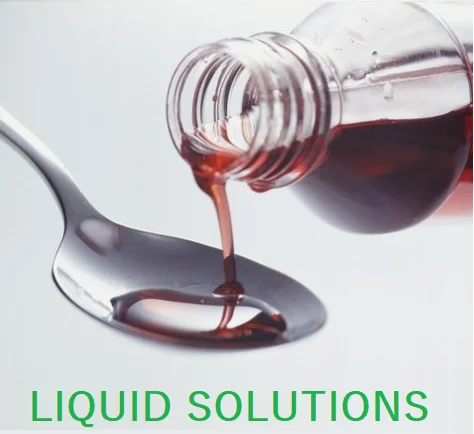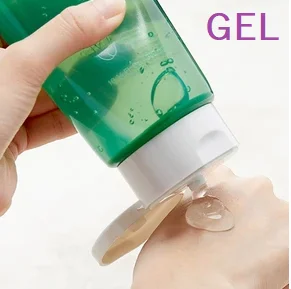GAMMA BENZENE HEXACHLORIDE LOTION
PURPOSE:
This Standard Operating Procedure is written to describe the formulae, manufacturing procedure, specifications, packing details of dosage form.
SCOPE:
This procedure is performed and is applied during the manufacturing of dosage form.
RESPONSIBILITY / ACCOUNTABILITY:
It is the responsibility of Manufacturing Chemist to follow and adhere to this SOP. The Production Pharmacist, QC/QA Manager are accountable for the strict adherence to the master formula.
COPY ISSUED TO:
- Master Copy: Manager Quality Assurance
- Copy No. 1: Production Pharmacist
- Copy No. 2: Manager Quality Control
- Copy No. 3: External Preparation Section
| PRODUCT NAME:GAMMA BENZENE HEXACHLORIDE LOTION | BATCH SIZE: 4000 LTRS. |
| PRODUCT REFERENCE CODE: | UNIT SIZE: 100ml |
| GENERIC NAME: GAMMA BENZENE HEXACHLORIDE LOTION I.P. | PACK SIZE: 12 x 8 x 100 ML |
| DOSAGE FORM: SEMI LIQUID | STRENGTH: N.A. |
| DEPARTMENT: EXTERNAL PREPARATION | EXPIRY DATE: AFTER 24 MONTHS FROM THE DATE OF MANUFACTURING |
COMPOSITION:
Gamma Benzene Hexachloride U.S.P. 1% w/v
EQUIPMENTS TO BE USED:
| SR. NO. | NAME OF EQUIPMENT | ASSEMBLING AS PER SOP NO. | CLEANING AS PER SOP NO. |
| 1 | Charging Tank E-02 (1200 Lts) | ||
| 2 | Storage Tank – 5000 Ltrs | ||
| 3 | Manual Bottle Filling Machine | ||
| 4 | Semi-Automatic Bottle Sealing Machine | ||
| 5 | Semi-Automatic Bottle Labelling Machine |
RAW MATERIALS:
| S.NO. | INGREDIENTS | STD | Theoretical Quantity Req. | Overages % | Total Quantity Used |
| 1 | CETOCETYL ALCOHOL | I.P. | 144.000 | – | 144.000 KGS |
| 2 | LAVENDER OIL | F.G | 20.000 | – | 20.000 LTR |
| 3 | LINDANE (GAMMA BENZENE HEXACHLORIDE) | U.S.P | 40.000 | – | 40.00 KGS |
| 4 | LIQUI D PARAFFIN LIGHT | I.P. | 200.000 | – | 200.000 KGS |
| 5 | S.L.S. | I.P. | 16.000 | – | 16.000 KGS |
PACKING MATERIALS:
| S.NO. | NAME OF THE MATERIAL | THEORETICAL QUANTITY REQ. | FOR RECORD | TOTAL QUANTITY USED |
| 1. | 100 ML PLASTIC FLAT BTLS | 10000.000 | – | 10000.000 NOS |
| 2 | 6 X 20 MM FLIP TOP PL. CAPS | 10000.000 | – | 10000.000 NOS |
| 3 | ADHESIVE TAPE ROLL BROWN | 3.000 | – | 3.000 NOS |
| 4 | CELLO TAPE | 10000.000 | – | 10000.000 NOS |
| 5 | CORRUGATED BOX S -18 | 104.000 | – | 104.000 NOS |
| 6 | OUTER | 837.000 | 2.000 | 839.000 NOS |
| 7 | LABEL FRONT | 10104.000 | 3.000 | 10107.000 NOS |
| 8 | LABEL BACK | 10104.000 | 3.000 | 10108.000 NOS |
MANUFACTURING SPECIFICATION:
- Average fill of each Bottle is 100 ml.
- Volume variation limit allowed in each filled Bottle is 100 ml to 102 ml.
- Make up the final volume accurately.
- Transfer the batch from charging tank to storage tank E-03 after complete charging of batch.
- Prepare the batch in 4 lots of same size i.e. 4 x 1000 Ltrs.
- Prepare second, third and fourth lot only after the completion of first batch.
- Prepare the rest of the lots in the same manner repeating the procedure of lot one and send the sample for bulk testing.
Yield:
- Theoretical Yield is 40000 Bottles.
- Expected Practical Yield is 40000 + 2% Bottles.
Packing Details:
- Wash the bottles manually.
- Transfer the lotion from charging tank to Manual Bottle Filling and Sealing Machine L-29 for filling of the bottles as per its SOP.
- Fill 100 ml of lotion in white plastic flat bottle.
- Label every filled and closed bottle, from both front and backside, manually.
- Pack each filled and labeled bottle in unit carton individually.
- Make a group of 12 bottles packed in one outer carton.
- Pack such 8 outer boxes in the Corrugated box S-18. Thus each corrugated box contains 8 x 12 x 100 filled and sealed bottles.
- Seal each corrugated box with adhesive tape and label it properly by affixing the specified label.
MANUFACTURING PROCESS:
- Add 880 kgs of purified water in the steam jacketed charging tank E – 02 and slowly heat at 700 C by running the steam in the jacket of the tank. Start stirring in the tank.
- Now add 36.0 kgs of Cetocetyl Alcohol in charging tank E – 01 and heat it to 700 C and add 4.0 kgs of S.L.S. to it. Mix properly by allowing stirring and transfer this Emulsifying Wax to charging tank under constant stirring.
- Heat 50.0 kgs of Liquid Paraffin to 650C in Stainless Steel Container and dissolve 10.0 kgs of Lindane to it. Stir it to dissolve completely and transfer to charging tank under constant stirring.
- Stop the stirring and cool the whole batch to room temperature.
- Add 5.0 kgs of Lavender oil to the same batch.
- Transfer this to the Storage tank .
IN-PROCESS CONTROLS:
The following in-process controls should be maintained during the processing:
- Check Raw materials used for manufacturing purpose are all approved and have ‘Released’ labels fixed on it.
- All weighed Raw materials should be counter-checked by Assistant Manufacturing Chemist. If any discrepancy is noticed, it should be immediately brought to the notice of Production Pharmacist and QC/QA Manager.
- Physical characteristics of Raw material like colour, odour, and consistency are checked before compounding.
- Final volume should be made as per Standard Operating Procedure using correct dipstick in the Assistant Manufacturing Chemist.
- pH of the bulk should be checked and it should be with in specified limits.
- Bulk sample should be sent for analysis to Quality Control Department before starting the filling and sealing stage.
- The Assistant Manufacturing Chemist should check intermittently filled volume at 30 minutes interval and record for the same should be kept in Batch Manufacturing Record.
- The net volume should be checked for all the filling nozzles and in no case, net volume should be less than volume claimed on the label.
Limit for Volume Variation: Volume claimed on the label + 2ml
Visual inspection of filled and sealed bottles should be done as per SOP and the record of the same should be kept in the Batch Manufacturing Record.
- Suspensions should be filled under constant slow speed stirring to maintain uniformity of contents.
- The labels and cartons should be checked thoroughly for proper batch coding.
- Intimation should be sent to Quality Control Department for finished product sampling and testing.
- After the completion of labelling and packaging, the coded labels and cartons should be accounted for and rejected printed material should be destroyed in the presence of QC/QA Manager. Maintain the destruction of the same in the Batch Manufacturing Record.
- It will ensure that filling or packaging equipment has been properly cleaned.
- Filling or packaging of next product should not commence until the IPQA has given the ‘Line Clearance’.





